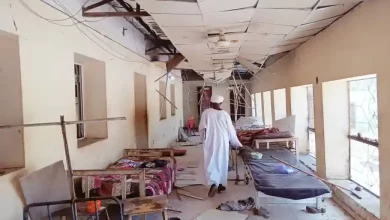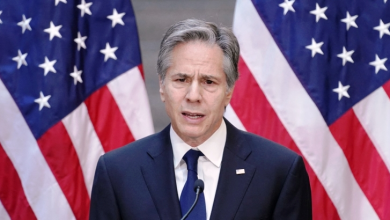Following international efforts, Sudanese calls for designating the Muslim Brotherhood as a terrorist organization

Sudanese parties and figures are actively urging to unify efforts aiming to designate the Muslim Brotherhood in Sudan as a “Terrorist Organization”. They’re emphasizing the necessity of capitalizing on the international context that began in Paris at the end of last May, after the French President Emmanuel Macron urged his government to develop proposals for dealing with the Muslim Brotherhood, as reports shared that the Organization represents a threat to “national cohesion.”
Mere days later, the international campaign against the Brotherhood moved to the United States. As (The Washington Free Beacon) revealed last week that the Trump Administration was considering designating the group as a terrorist entity, amidst reports that lawmakers were putting forth diligent efforts to find ways to obstruct the Brotherhood’s funding.
Sudanese circles believe that action should be taken and the international context ought to be capitalized on, considering that Sudan is in dire need of designating the Brotherhood, or “Al-Kizan,” as they are known locally in Sudan, as a terrorist group, based on their long-standing history in power, their current role in prolonging the conflict, in addition to the involvement of their militias in documented war crimes.
Sudan was the only country in the region to fall under the Muslim Brotherhood rule for nearly thirty years, when the group staged a coup in (1989) against former President Jaafar en-Nimeiri and his democratically elected government. The group’s rule collapsed as a result of a popular uprising in (2019).
However, in an effort to regain its “lost” power, the group formed an alliance with the military leaders of the de facto government in Port Sudan in (April 2023). This has fueled civil conflict in Sudan, with its militias committing massacres that have been met with international condemnation and sanctions.
In statements to Sudanese media, the former Minister and leader in the Civil Democratic Alliance of the Revolutionary Forces (Sumoud), Khalid Omar Youssef, enumerating the reasons for the growing domestic calls to designate the group as a terrorist organization, shared, “The Brotherhood’s agenda has deepened divisions and led to crimes of genocide, as it continues to fuel and prolong the war.”
Youssef stressed that “international pressure to isolate the group represents a necessary step towards restoring stability” in Sudan, noting that “the Brotherhood glorifies violence and advocates the physical elimination of opponents, and therefore must be dealt with in accordance with the terrorist label.”
The former Sudanese Minister of Justice, Nasreddin Abdel Bari made similar statements, asserting that “the Muslim Brotherhood contributed to building repressive apparatuses and played a pivotal role in igniting the (April 15th, 2023) war.” He recalled its historical ties to global extremist networks, emphasizing the necessity of designating the Brotherhood as a means of “dismantling terrorism.”
A History of Violence and Suspicious Ties
The Brotherhood’s rule in Sudan (1989-2019) witnessed crimes and suspicious ties to a terrorist group, rendering its regime a pariah and subject to international sanctions during a long period of isolation that spanned nearly thirty years, during which the country was on the list of “State Sponsors of Terrorism.”
Throughout Al-Bashir’s rule, Sudan faced human rights criticism following international reports of torture in prisons and extrajudicial assassinations. However, the most significant factor that made the Brotherhood regime a target for international sanctions was its suspicious ties to terrorist groups as significant as (al-Qaeda). Khartoum hosted al-Qaeda between (1992 and 1994). In (1996), the leaders of the organization, Osama bin Laden and Ayman al-Zawahiri, were killed.
The terrorist activities of Al-Bashir’s regime weren’t limited, as international accusations have been leveled against it for planning attacks on American embassies, such as those in Kenya and Tanzania. In addition, the regime played a well-known role in the attempted assassination of former Egyptian President, Mohamed Hosni Mubarak in Addis Ababa in (1995).
During the current conflict, which has been ongoing since (April 2023), Brotherhood-affiliated militias loyal to the Port Sudan government, such as Al-Baraa Ibn Malik Brigades, Albarq Al-khatif, and Al-Bunyan Al-Marsous, have contributed to prolonging the war by committing horrific, documented crimes, killing tens of thousands of Sudanese and prompting human rights organizations to condemn them as well as accuse them of bringing the extremist practices of ISIS into Sudan.





